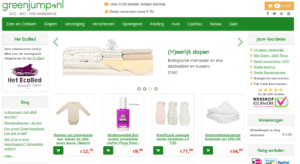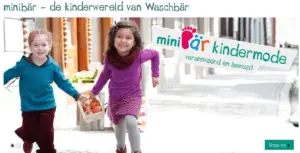Fair Trade children's clothing & organic cotton | shop at these 5 stores
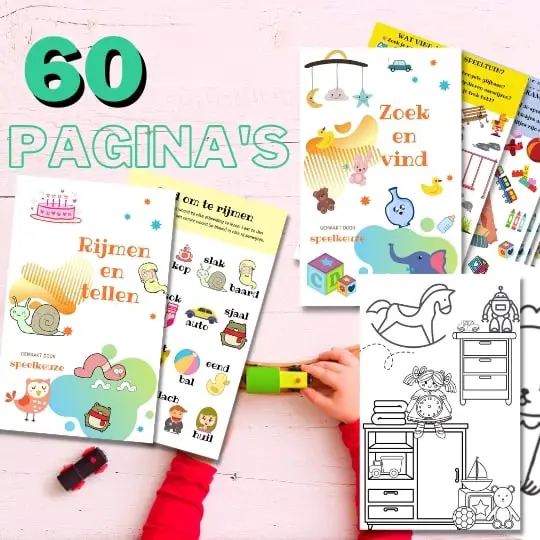
Always something to do for the holidays or rainy day?
Play Choice now has the ultimate activity book collection, with over 60 pages of fun coloring pages and educational puzzles.
Not every website offers the option, but if you are serious about fair trade, it is also a good time to start with your children.
Many parents are switching at the moment, especially given all the news surrounding the practices of some major clothing brands, including those that carry children's clothing.
In this article, I'll take a look at some of the best organic and fair trade children's clothing stores online.
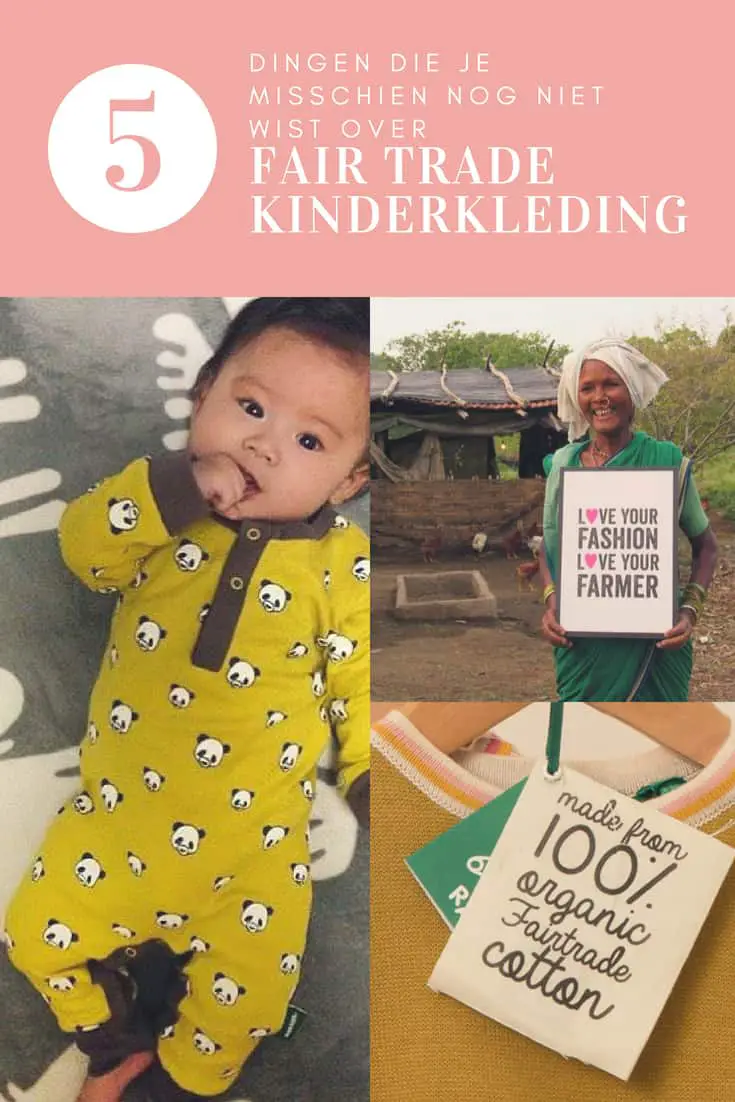
These websites offer fair trade children's clothing or clothing for children made of organic cotton:
| Shop | Images |
| Fair trade: greenjump | 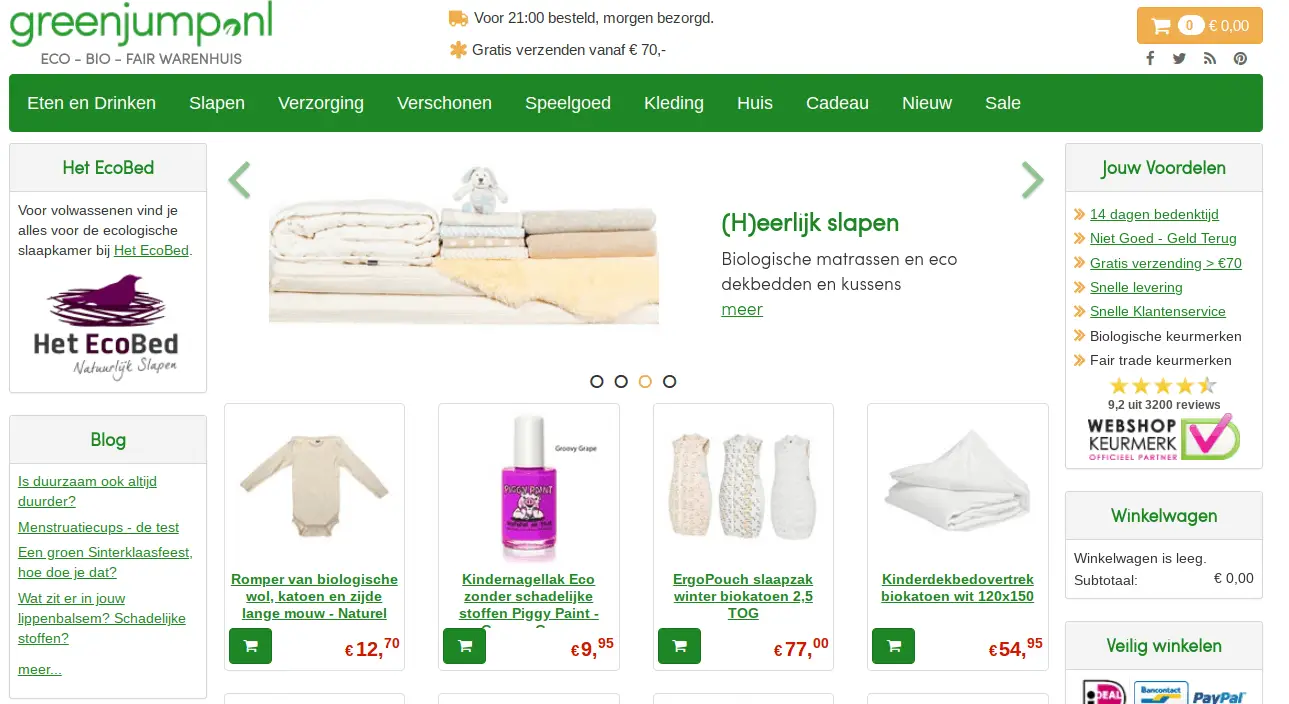 (check out the clothes) (check out the clothes) |
| Fair Trade & Organic Cotton: Waschbaer | 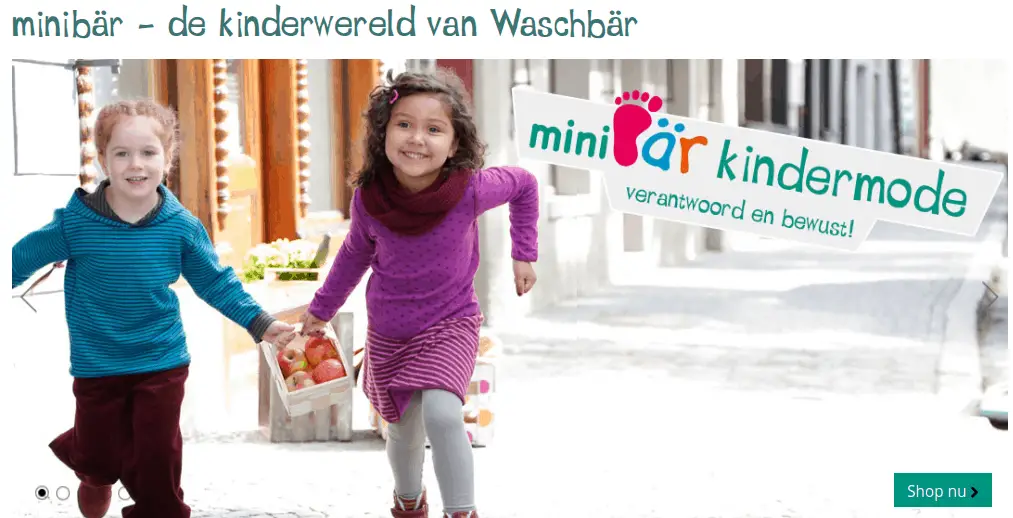 (check out the clothes) (check out the clothes) |
| Fair trade & organic cotton: Wehkamp |  (check out the clothes) (check out the clothes) |
| Organic cotton: noppies | 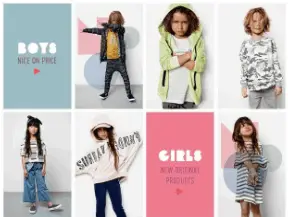 (check out the clothes) (check out the clothes) |
| Organic cotton: Imps & Elfs | 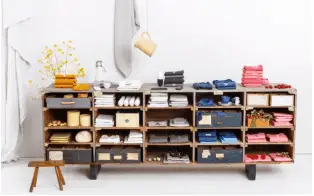 (check out the clothes) (check out the clothes) |
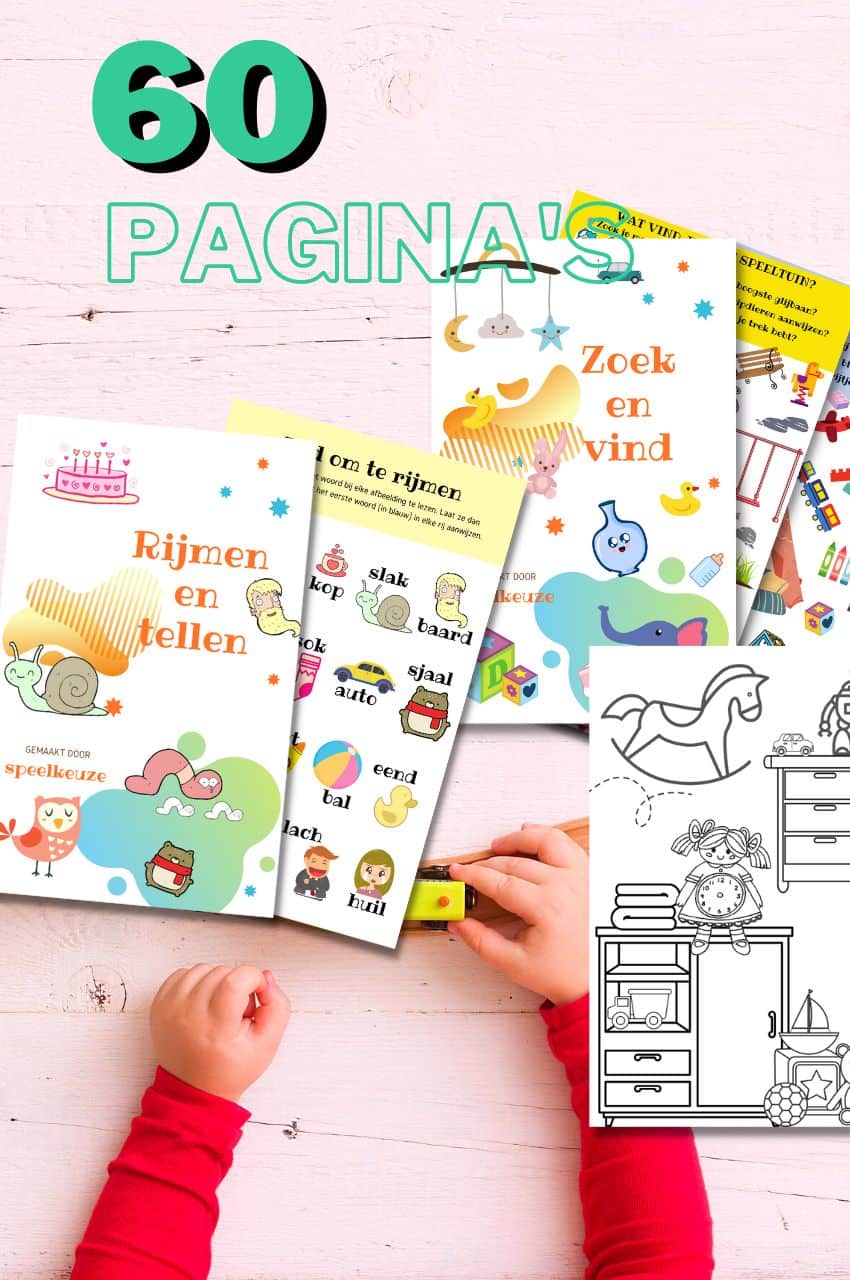
From toddler to toddler activity book collection
Educational games and coloring pages for 3 to 6 years
Your toddler and preschooler will love this e-book, along with the accompanying printables. He or she can play with it at every stage of development, together with mom and dad.
Buy at Bol.comWhat we discuss in this comprehensive post:
- 1 Shops with Fair trade children's clothing
- 2 5 things you may not know about Fair Trade children's clothing
- 2.1 Fair Trade makes more money for the people who produce your clothes
- 2.2 Empowerment and equal rights are at the heart of Fair Trade
- 2.3 You don't just improve lives, you protect the environment
- 2.4 In Fair Trade certified factories, employee satisfaction is high and turnover is low
- 2.5 You can also find nice Fair Trade certified clothing, shoes and accessories NOW!
- 2.6 Do you also buy Fair Trade from now on?
- 3 Children's clothing stores with organic cotton
- 4 What are the benefits of organic cotton?
Shops with Fair trade children's clothing
greenjump
Eco, Bio, Fair department store. That is what Greenjump stands for, and you can see this immediately back on their website.
Organic and sustainable products for the whole family, they have everything from stainless steel drinking bottles to drinking bottles made of glass and even fair trade lunch boxes.
But of course we focus on the clothing here.
There is a very extensive range available, which actually already starts with the environmentally friendly and ecological diapers for their buttocks.
These are, for example, diapers made from organic cotton.
They have organic baby clothes and children's clothes made of organic cotton for both boys and girls.
Many materials such as wool and cotton are extremely suitable for organic cultivation and there are many woolen onesies with silk and ones made of organic cotton.
This type of fabric is very suitable as undergarments because of its structure and is therefore also often sold as pajamas or wool underwear.
Also take a look for the range of sweaters and pants they have for both children and adults and you can even find warm outdoor clothing in the webshop.
Waschbaer
In Waschbaer's online shop you really have everything in the field of ecological toys and children's clothing.
It is a real department store, but completely focused on organic and responsible.
Of course everything for baby, boys and girls that you can buy for yourself.
But you will also find specific maternity gifts that make it fun to give for that environmentally conscious girlfriend you have.
Here you also see a lot of wool and felt passing by as materials but of course also cotton.
And toys and other things that you need for your child are often also made of wood.
Wooden toys like these are often one of the first things parents turn to for sustainability as well, and we have already written here about the best wooden toys.
If you want to shop for your kids in an environmentally friendly way, Waschbaer is the store for you!
Anyway, super nice items that are also eco-friendly, they have completely irresistible and cute outfits for children. The children's department can be found here.
Wehkamp
Wehkamp also has their own department on their site, completely focused on fair trade and honest products.
They choose brands that produce in a fair way and call this “Fair Fashion”.
Their labels are increasingly making fair fashion, also because they see a trend among today's environmentally conscious consumer. Fair Fashion is fashion that is made to be less harmful to the environment and society.
They are products that enable farmers and factory workers to work under better conditions.
Do you want to know which brands have products made in an environmentally friendly way, with love for people and the environment? Then take a look at Wehkamp.
The nice clothing store has it all. Although not their entire range is organic, you can now also shop in an environmentally conscious manner.
They even set up a separate page for it.
Well, we recorded the post and put it on Youtube, so you can watch it here or read on for all our information and tips:
5 things you may not know about Fair Trade children's clothing
Fair Trade aims to help people, especially at the most labor-intensive points in the supply chain, to retain more value and improve their lives.
Transforming the clothing industry is within reach.
By participating in responsible sourcing practices that protect people and the planet, fashion brands can contribute and a brand can communicate their values to our society.
This is an evolving conversation, sparked by increasingly aware consumers who want to know how their clothes, shoes and accessories are produced.
So how does Fair Trade fit into this sustainable clothing dialogue, and what exactly distinguishes it from “normal” children's clothing?
Perhaps best known for certification in coffee, Fair Trade is a market-oriented approach to improving the lives of farmers and workers, protecting the environment, and delivering quality and safety.
In essence, Fair Trade places sustainability on top of the value chain in every step of the production process.
Whether on a farm or in a factory, participants must adhere to rigorous standards regarding such things as safe working conditions, grievance procedures, harassment, set hours of work, absence of child labor, freedom of association and environmental best practices.
Fair Trade organizations and their partners are working together to apply this model to global clothing, footwear and accessories production.
Here are five unique features you may not have known about the global Fair trade children's clothing industry:
Fair Trade makes more money for the people who produce your clothes
The clothing industry has a long and notorious history of labor abuse and often deadly tragedies, especially in factories.
One of these abuses are impossibly low wages, resulting in a situation where workers and cotton farmers receive only a small fraction of the final price of a garment.
This in turn exacerbates the conditions of extreme poverty.
Fair Trade aims to help people, especially at the most labor-intensive points in the supply chain, to retain more value and improve their lives.
In addition to regional wage and price requirements, as covered by Fair Trade standards, farmers and workers earn an additional Fair Trade premium to invest in their communities.
This is usually about 5 percent of the manufactured price of a garment. And this, of course, is an especially interesting part of the process.
Not only do the employees now earn more, but they also receive help to make their lives better little by little.
The distribution of the Fair Trade premium results results in tangible changes in the local community, including building schools, improved access to healthcare, and distributing cash bonuses for household expenses.
Also read: the best wooden ground boxes
Empowerment and equal rights are at the heart of Fair Trade
Another goal of Fair Trade is to put farmers and workers in front of the driver and help them achieve a voice and position of power in the workplace.
This is done, among other things, through the establishment of a Fair Trade Committee that is democratically elected and is responsible for managing the Fair Trade premium.
Individuals also receive a series of training courses, are informed about grievance procedures and their right to organize.
Protecting and creating new opportunities for women is also critical.
With equal pay and equal rights at the forefront, Fair Trade mandates and specific standards regarding maternity leave, health care and freedom from harassment (sexual and otherwise).
We have also seen women use extra premiums to invest in new business opportunities, such as starting a small shop, to further support their families.
You don't just improve lives, you protect the environment
At a corporate level, Fair Trade environmental standards include issues such as proper waste disposal, water disposal, chemical use, and GMOs.
Likewise, a factory must develop a reliable environmental management plan to achieve Fair Trade certification.
In particular, this means that they must set goals and actually monitor these progress in reducing water, waste and energy consumption.
In Fair Trade certified factories, employee satisfaction is high and turnover is low
Everyone wants to feel supported, empowered and reasonably compensated in the workplace.
In Fair Trade factories around the world, retention rates are therefore much higher than average.
During the production process when employees proudly affix the Fair Trade label to each product, they know which brands are committed to Fair Trade and to provide direct financial benefits to their families through Fair Trade premiums.
You can also find nice Fair Trade certified clothing, shoes and accessories NOW!
Just a few years ago, the idea of a Fair Trade wardrobe was a distant dream.
However, the opportunity to choose clothes that are stylish, well-made and tailored to your taste is growing.
Join the support of these brands and applaud them for their commitment to social and environmental sustainability.
It is also time to inspire those companies that have yet to take another significant step forward in creating more transparent, ethical supply chains and show them the importance of ethical business practices.
If we are to avoid tragedies such as the Rana Plaza factory collapse, we must commit to purchasing products that ensure that farmers and workers are seen as living fellow human beings rather than nameless, faceless, expendable masses.
Now is the time to invest in a new future for sustainable clothing.
Responsible shopping has never looked better.
While apparel manufacturing generally has a reputation for bypassing ethical practices and sustainable manufacturing, there are a few fashion labels that are on the right track with their fair trade practices, manufacturing ethics, fair methods and sustainable materials.
Not only do consciously fair trade designed clothing brands have a positive influence on how we shop, it makes us feel good about our purchases and inspires other companies to do better.
Some fashion brands raise the bar for the toxic fast-fashion industry through the use of natural fibers and thoughtful manufacturing for long-lasting durability.
Others purchase the majority of their Fair Trade products from marginalized producer groups in developing countries and use natural resources throughout the production chain to promote environmentally friendly initiatives for a sustainable future.
Most pursue transparency with every product they make, from materials to labor to transportation.
For example, by using only certified organic cotton.
Then there are those brands that are proud to switch (or revert to) the time-honored techniques of highly skilled, local manufacturers in some of the oldest factories in the country.
Most will at least stay away from using leather or other animal materials in their designs and every clothing season will look for new and innovative ways to stay sustainable and environmentally friendly.
Most will at least stay away from using leather or other animal materials in their designs and every clothing season will look for new and innovative ways to stay sustainable and environmentally friendly.
Well-sustainable companies invest in the future.
From their employee wellness initiative to their production technique that uses far less water than traditional methods.
It's about building the best product without causing unnecessary damage with solutions to end the environmental crisis.
Do you also buy Fair Trade from now on?
This is all about fair trade in combination with the children's clothing industry.
Hopefully I have been able to inspire you a bit and you will gradually switch to this way of clothing production.
Children's clothing stores with organic cotton
noppies
Also the children's clothing brand noppies contributes. With a separate page about their forays towards fully organic cotton children's clothing, they want to make their brand increasingly green.
Imps & Elfs
Cute clothes for smaller children. Imps & Elfs makes all their shirts from organic cotton and you find the latest offers here
What are the benefits of organic cotton?
Organic cotton has great advantages at different levels of the value chain. Not just for you as a consumer.
Farmers, traders, retailers and consumers all reap the economic, social and environmental benefits of ecological cotton cultivation projects.
I would like to discuss the various advantages in the value chain with you here. Hopefully you will be convinced to buy organic children's clothing (and also for yourself of course).
Benefits for farmers
Balanced ecosystem and improved health
Thanks to the use of natural fertilizers and pesticides, groundwater and rivers are kept free of synthetic chemicals.
Biodiversity is enhanced by diversified cultivation and the non-use of GMOs (genetically modified organisms).
As a result, the health of farming families has improved and their risk of being contaminated with dangerous chemicals has been reduced to a minimum.
Improved economic situation and food security
In organic production systems, agricultural production costs are significantly lower as most inputs are produced with local farm-level resources (compost, manure, natural pesticides).
Improved crop rotation ensures that farming families are fed a variety of different food crops, improving their food security and decreasing their dependence on the cotton market.
At the same time, the risk of crop failure due to adverse climatic conditions or pest control is significantly reduced due to crop diversification and the cultivation of well-adapted species.
Moreover, organic cotton provides extra income thanks to the organic premium increase.
Improved access to markets
The demand for organic cotton is constantly on the rise as more and more buyers are looking for high quality cotton that is produced according to strict environmental and social standards.
An organic certificate gives organic cotton farmers access to this dynamic market, reducing their dependence on the fluctuating world market for conventional cotton and giving them a better price for their product.
In addition, the organic production model is often based on long-term partnerships between all stakeholders along the value chain, enhancing the farmer's economic security.
Training and education
A critical factor for the success of organic cotton farming is solid training in organic practices and effective quality management.
Farmers in organic cotton projects benefit from logistical and technical support from producer organizations and networks.
Unlike conventional cotton production, where the risks associated with handling dangerous chemicals prevent the population from involving their women in cotton production, many organic cotton farmers in developing countries are women, thus having access to education and a financial income. .
Organic cotton production has a positive impact on their independence and self-determination.
Benefits for traders and retailers
Participation in a dynamic market
The organic cotton market is very dynamic: according to the most recent organic currency market report, global retail sales of organic cotton products reached 63%.
This shows that, unlike the fairly saturated market for conventional cotton, there is great potential for companies investing in organic.
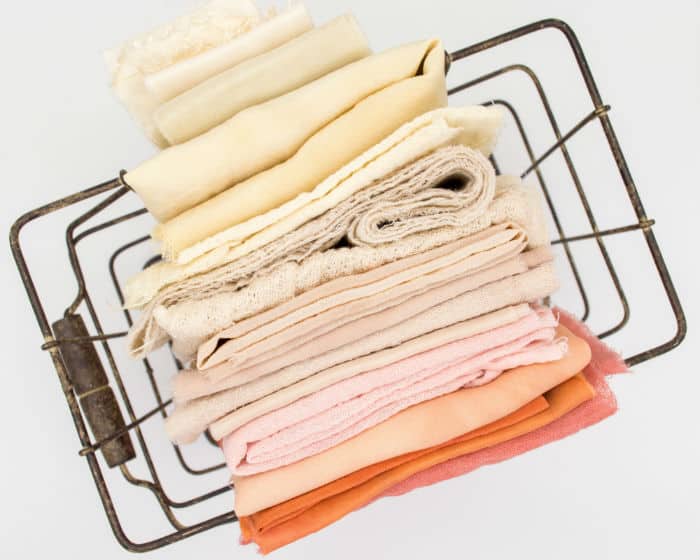
Traceability, risk and quality management
Companies can seriously reduce risks throughout the value chain, in terms of the environment, social conditions and product quality.
The organic certificate guarantees that hazardous chemicals have not been used in cotton production and companies know the history of their products thanks to clear standards verified by an independent certification body.
In addition, these standards can be communicated transparently to buyers and consumers.
Contribution to ecological and social sustainability
The “carbon footprint” or emissions from the production of conventional and organic cotton differs enormously. The impact on the environment of organic is many times lower.
Furthermore, there are many programs that support the development of areas grown with organic cotton.
With this support and guidance, growers are changing their way of working by implementing biologically-based practices that protect the region's land, air and water resources.
Working this way eliminates the 11 most toxic chemicals used in conventional cotton cultivation, reducing toxicity in the air, soil and watersheds.
The downside is that the costs of growing organic cotton are in many cases higher than what many brands are willing to pay.
In several trials, the yield from organic cotton fields was no less than 30% less fiber than from “conventional” fields.
Many brands are simply not willing to pay this extra price, also driven by the retail trade and the consumer.
Fortunately, more and more consumers are making the decision to switch and opt for product quality and the environment.
Image and credibility
Today companies have a great responsibility towards the environment, producers, employees and of course consumers.
By using organic cotton in their products, they take on this responsibility, contribute to a more socially and environmentally sustainable production cycle, and give credibility to their company's operations.
“Sustainability sells” - instead of buying an anonymous product, more and more consumers are looking for healthy, eco-friendly clothing that is explained transparently and guaranteed not to violate labor laws.
Buying green and fair products suits a modern and trendy lifestyle.
Benefits for the consumer
Buy a healthy product
Not only quality is guaranteed.
The product is also much less processed, which, especially for delicate children's skins, is often much better and can be washed more often.
Traceability, clear standards and labels
Your purchased product can be followed at every step of the chain, so you know where the product comes from: transparent market information with brands and labels and a transparent product with indicated origin.
Do your bit for the environment
The impact on the environment of organic cotton production is many times lower, with which we all contribute to the future of the planet.
Make a positive impact on farmers' lives
It is not easy for farmers working in the cotton industry.
By buying organic children's clothing, you ensure that they have a better chance of fair prices for their cotton, and that they can learn and build the future for their family.
[Wl_faceted_search]

Always something to do for the holidays or rainy day?
Play Choice now has the ultimate activity book collection, with over 60 pages of fun coloring pages and educational puzzles.
Joost Nusselder, the founder of Speelkeuze.nl is a content marketer, father and loves trying out new toys. As a child he came into contact with everything related to games when his mother started the Tinnen Soldaat in Ede. Now he and his team create helpful blog articles to help loyal readers with fun play ideas.
